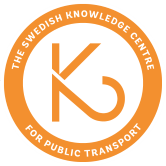IRIMS
IRIMS
The project aims i) to build knowledge of how existing institutional frameworks (e.g. societal regulations and planning processes, organizational models and cultures, policy instruments, consumption patterns, and individual habits and practices) affect urban transport, and ii) to propose policy recommendations on how the institutional frameworks can be modified to enable new, integrated mobility services that are capable of contributing to a transition towards increasingly sustainable travel. Integrated mobility services have been described as a new paradigm in which the traveler ́s transport needs are fulfilled by a service integrating the entire transport system into a synergetic ecosystem, but there are a number of challenges that must be addressed if this type of service is to become established, such as changes in policies and regulations. The interdisciplinary project brings together research on institutional barriers and enablers within the mobility domain and the development of new technologies and services. The project is based on case studies of new integrated mobility services that can eventually come to dominate the future urban context. An analytical tool aids in the identification of institutional barriers and enablers for the development of integrated transport services, and scientifically based recommendations are developed in collaboration with relevant stakeholders. The project contributes new knowledge that is in demand both nationally and internationally.
